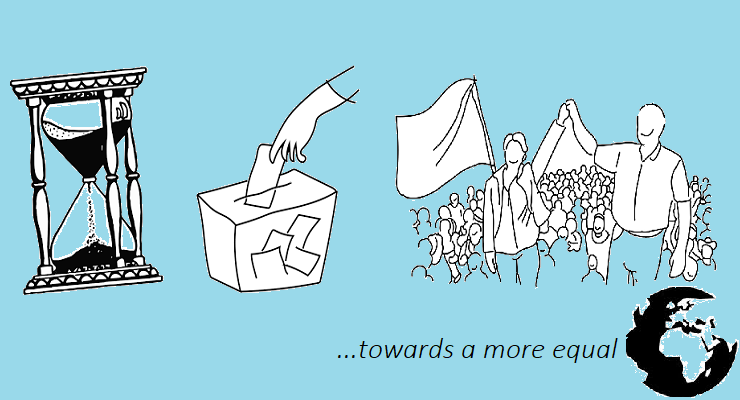
The world is growing more unequal, but not quite because “the rich are getting richer and the poor poorer.” The good news is that the percentage of extremely poor people has actually shrunk greatly worldwide over the last several decades. The bad news is that the already-rich are getting richer. There are a number of reasons for these trends, but my purpose here is to remind us all that despite growing inequality worldwide, ordinary people have three specific, significant and actionable forms of equalizing power.
First, rich or poor, weak or powerful, everyone has 24 hours in their day. That may sound obvious, but what you make of your non-working waking hours is up to you, and activists beg for your volunteer time for good reason: time is not just money, time is power. Given this equalizing fact that we all have 24 hours per day, and that there are millions of good people who don’t volunteer their time for the greater good, the potential for social change is great if more people invested more hours per day, week or month to making the world a better place for all.
Second, each person has one vote, no matter who they are. We often hear that the rich rule, or that “money talks.” That’s often true, but in functioning democracies, all the money spent on elections is devoted to getting people to vote because money doesn’t vote, people do. That’s why you sometimes hear of candidates that come out of nowhere, and win with little money, but a lot of time (Point #1 above) invested in organizing (Point #3 below) connecting with voters.
Third, in all places, there is power in numbers. I am not talking about numbers of dollars, but numbers of people. I sometimes hear children or foreigners say “I can’t vote, so I don’t have a voice.” Nonsense. Anyone who can mobilize voters has power, and the more voters you mobilize, the more power you have. A fourteen-year old can’t vote, but if she mobilizes five people to vote the way she wants them to, she has exercised five times more power than the adult who voted alone. A foreigner can’t vote, but can assemble at their home a group of neighbors who vote then invite a local politician. Aspiring and elected officials flock not just to money, but to groups of voters, like issue groups, churches, senior citizen communities, etc.
If you hope for and/or fight for equality and justice, never forget these three equalizers.
Leave a Reply